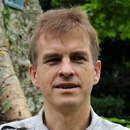Background and objectives
Between 2009 and 2020, CIFOR and partners implemented a Global Comparative Study on Reducing Emissions from Deforestation and Forest Degradation (GCS-REDD+) across 22 countries. In 2021, Phase 4 of this initiative began in Peru, the Democratic Republic of the Congo and Indonesia, with select activities also taking place in Brazil. This phase aims to provide tools and lessons for decision makers and professionals to help them design and implement effective, efficient, and equitable policies and actions that reduce emissions from deforestation and degradation, improve the forest sector’s contribution to NDCs, and guarantee the rights of Indigenous Peoples and local communities.
Part of the work under Phase 4 will look to co-produce knowledge, focusing on three main areas where information gaps hinder the formulation of effective, efficient, and equitable policies. Such policies are needed to attract, manage, and grow inclusive results-based finance. The three areas of focus are: (i) greater transparency in forest monitoring, REDD + activities, national policies, and global supply chains; (ii) more systematic evidence on which forest-friendly policies and actions work best, under what circumstances, and in what combinations; and (iii) better understanding of the opportunities and barriers to transformational change when it comes to global, national and subnational forest governance, politics and economics. The knowledge generated will be used to co-produce a deforestation and forest degradation framework (‘diagnostic framework’) as well as public policy scenarios, with diverse actors in each of the study countries. This process and the diagnostic framework itself will provide key REDD+ stakeholders with an interdisciplinary and multisector platform that considers the impacts of policies and actions in different contexts, as well as the political space to propose specific interventions in the country.
In each country, we will invite experts in forestry and climate change policy, agriculture, finance, and development to join the Public Policy Advisory Group (GAPP). These GAPP experts will come from government agencies, academia, civil society, the private sector, Indigenous organizations, and international NGOs. They will help align and link project activities with national needs, and act as co-producers of knowledge through science and public policy platforms, thus supporting the integration of scientific information into political processes. Each year, at least two session of the Science and Policy Platform will be organized, with three aims in mind: (i) to promote the exchange of information and lessons learned among key actors from different countries; (ii) to promote discussion and the co-creation of knowledge with key national stakeholders; and (ii) to align and link project activities with national needs.
The first meeting of the Science and Policy Platform in Peru directly addressed the Safeguards Information System for REDD+ in Peru, establishing a model of interaction between researchers, policies, professionals, and representatives of Indigenous Peoples for the future of the platform. The second session of the platform focused on the scenario building and modelling component of the Global Comparative Study (GCS). This dialogue aimed to model future scenarios of forest loss and carbon emissions, to better understand the risks and opportunities associated with achieving emission reduction goals. This involved seeking out stakeholders who could appropriately contribute to designing narratives for scenarios related to the Peruvian Amazon.
The third session of the Science and Policy Platform will focus on deforestation diagnostics for Peru. Within the framework of the Global Comparative Study on REDD+, CIFOR-ICRAF will present its work on how to define and identify different archetypes (models) of deforestation in Peru, recognizing the different causes of deforestation and the different impacts of conservation policies. The Ministry of the Environment will also present progress on the reference level for deforestation in the Peruvian Amazon. The workshop will provide useful new knowledge for decision makers and other REDD+ actors, as well as potential avenues for future collaborations between parties.


























